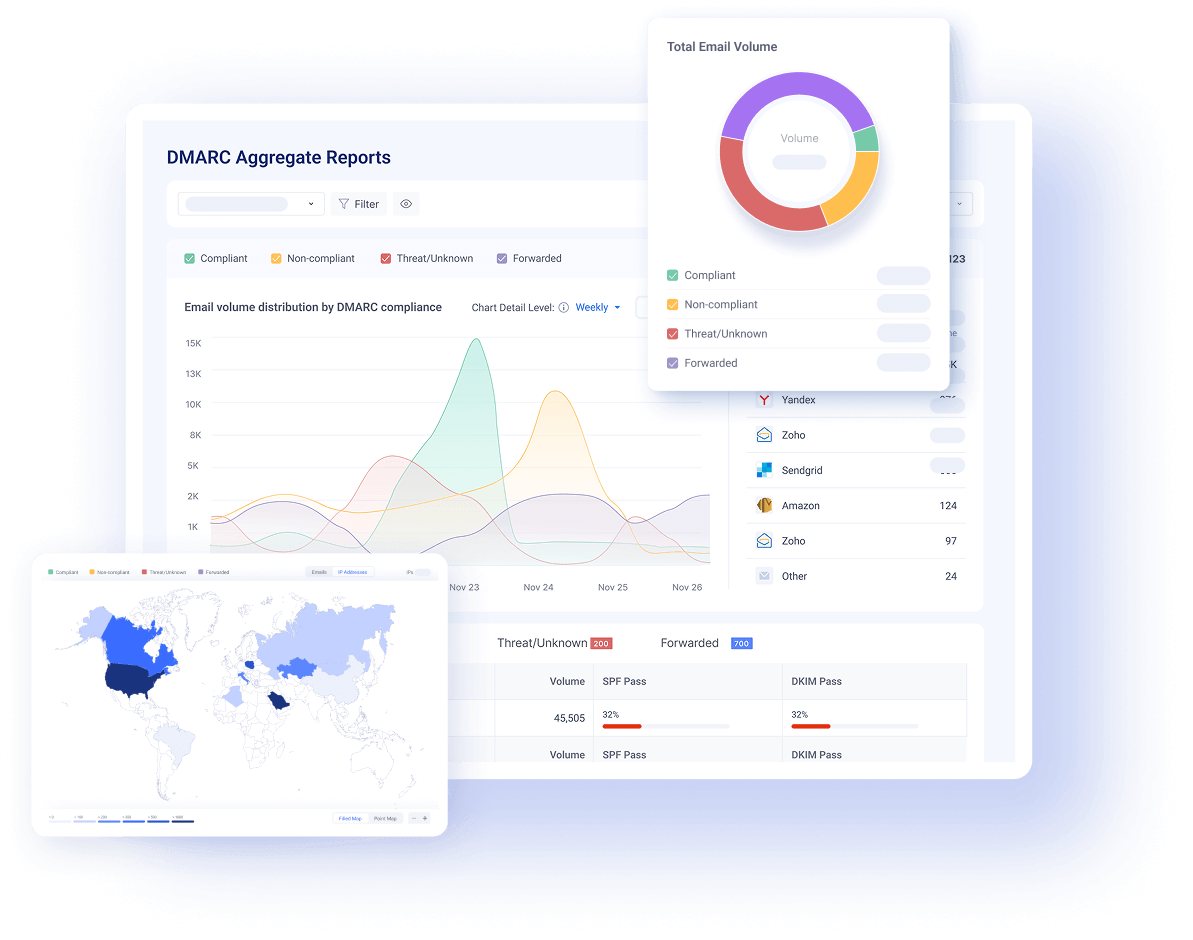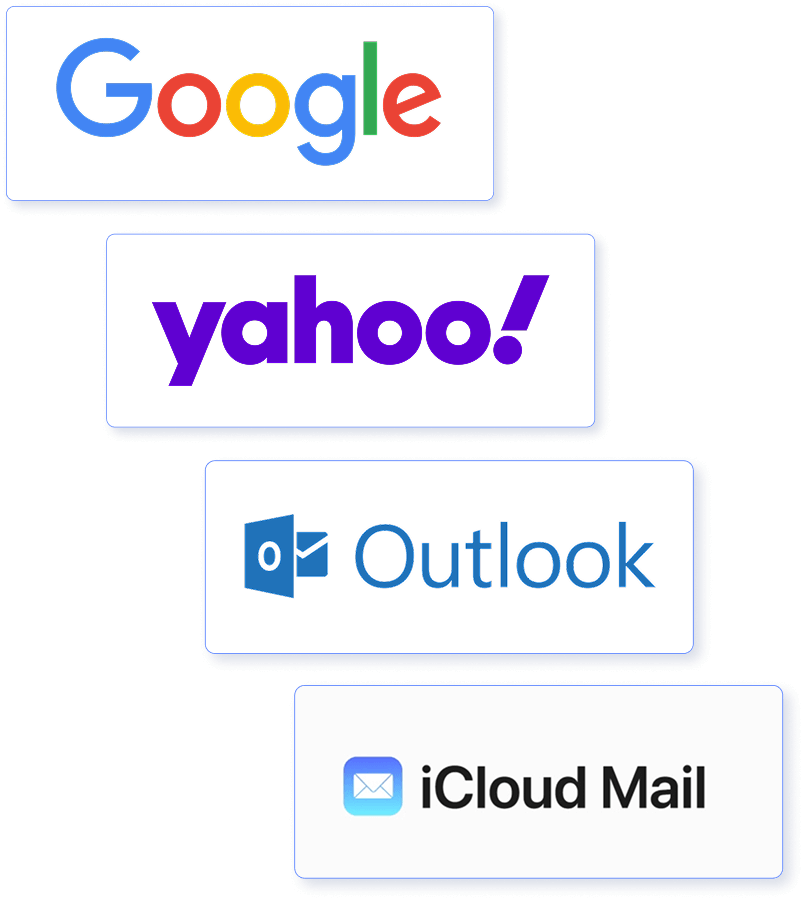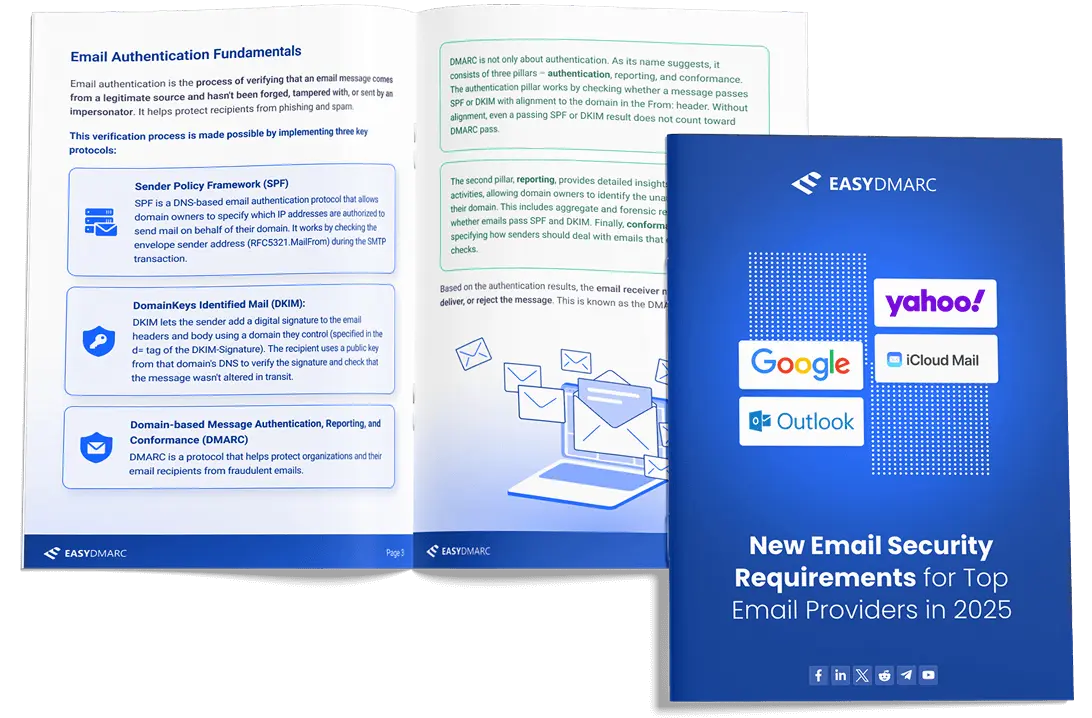Stay Compliant with Gmail, Yahoo, and Microsoft
Google and Yahoo already require DMARC, and Microsoft starts on May 5, 2025. Are you compliant?

Gmail, Yahoo, and Microsoft DMARC Requirements
Google DMARC requirements and Yahoo DMARC requirements have been in force since February 2024, and Microsoft DMARC implementation must be in place before May 5, 2025. If your domain isn’t compliant, your emails could land in spam – or be blocked altogether.
The new requirements focus on DMARC implementation and alignment, SPF and DKIM authentication, unsubscribe options, and list hygiene. Whether you’re an IT manager, a marketing director, or a compliance officer, staying ahead of these changes is critical to maintaining email deliverability and protecting your brand from spoofing and phishing attacks.
New Email Rules for Bulk Senders
Learn more about new sending guidelines for top email providers like Google, Yahoo, Microsoft, and iCloud with our in-depth blog.
Read MoreWhy Comply with New Email Sender Policies?
Failing to meet the latest email authentication requirements from Google, Yahoo, and Microsoft can have serious consequences for your business, including:
- Legitimate emails being blocked or marked as spam
- Damaged sender reputation and reduced inbox placement
- Your domain becoming a target for spoofing and phishing
- Missed revenue and customer engagement opportunities due to poor email deliverability

Get the Complete Guide to New Email Authentication Compliance
Looking for a detailed breakdown of sender policies, technical setup, and email security changes for major email providers? Our free ebook has what you need.
Download Now
EasyDMARC Makes Google, Yahoo, and Microsoft Compliance Simple
We protect 175,000+ domains and improve our customers’ email deliverability with secure email authentication.
Simplified Implementation
EasyDMARC takes the complexity out of DMARC implementation. Our user-friendly interface simplifies the set-up process, making it accessible to everyone, regardless of technical expertise.
Comprehensive Guidance
We walk you through each stage of the email authentication process, from initial setup to ongoing management, empowering you with the knowledge and tools necessary to succeed.
Dedicated Customer Support
Whether you have questions about implementation, need assistance interpreting reports, or require guidance on best practices, our team of experts is there to help you every step of the way.
The new DMARC requirements mandate that senders implement SPF, DKIM, and DMARC for their domains. Google and Yahoo began enforcing these rules in February 2024, while Microsoft will start enforcement on May 5, 2025.
Microsoft will begin enforcing DMARC and email authentication requirements on May 5, 2025. Domains that don’t meet Microsoft’s policies by then risk email deliverability issues and potential blocking.
Your emails may be blocked, placed in spam, or result in a damaged sender reputation, reducing overall deliverability. It also increases your domain’s vulnerability to spoofing and phishing attacks.
You can use our DMARC Lookup tool to check your DMARC records.
While it's critical for bulk senders to have a DMARC policy, any domain benefits from having a DMARC policy to prevent spoofing and protect brand identity. A DMARC policy of p=reject provides the best protection, but this must be implemented gradually with the help of DMARC engineers.